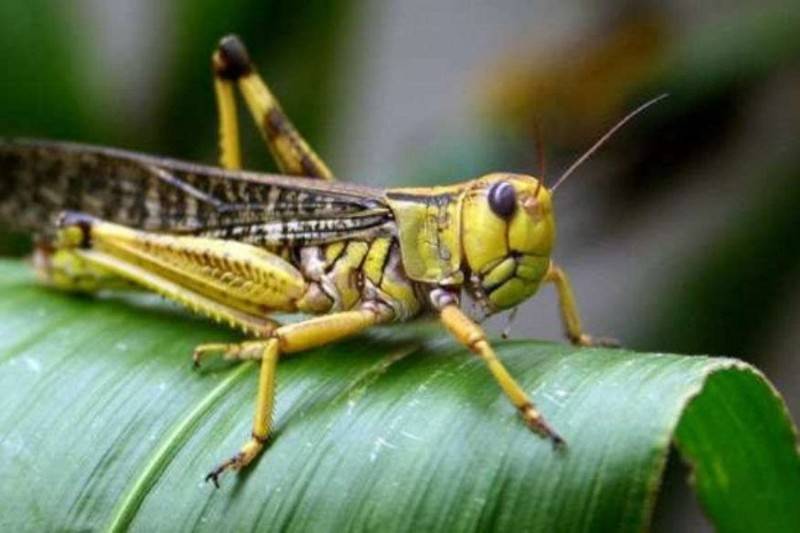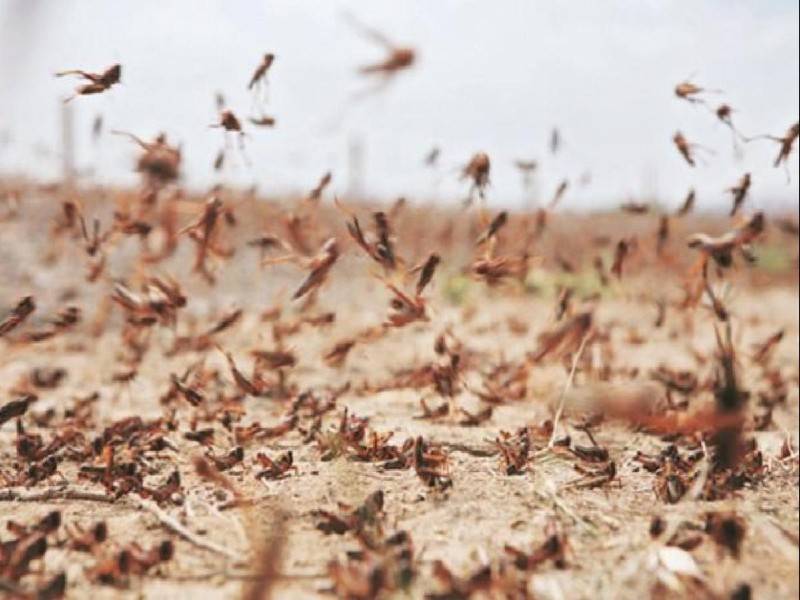
A day after Prime Minister’s call for a self-reliant India, the Union Minister of Agriculture and Farmers Welfare, Narendra Singh Tomar interacted with representatives of Pesticide Manufacturing Industry through video conferencing to fine-tune a strategy to prevent locust attacks on agricultural fields. He said agriculture is a priority sector as emphasized by the Prime Minister Narendra Modi and the Government will leave no stone unturned to ensure uninterrupted sowing and harvesting operations. Central and State Governments are working together on the Desert Locust Control measures and have been able to check its spread, says the PIB reports.
New machines have been ordered from the United Kingdom and will arrive soon, said the agriculture minister.
Tomar said the locust invasion was first noticed last year and the farmers were taken unawares as it took place after decades. He expressed satisfaction that the losses were checked due to timely action by the Union Agriculture Ministry and the concerned State Governments with the support of farmers. The Centre has compensated farmers who suffered losses from the NDRF Fund. He said the international community has lauded India’s efforts and the Government was ably supported by the Pesticides Industry towards this end. The Ministers of State for Agriculture and Farmers Welfare, Parshottam Rupala and Kailash Choudhary were present during today’s video conference.

Locust Control Offices are working since April 11, 2020 with 50 spray equipment/vehicles
Despite the prevailing Covid-19 lockdown, the Locust Control Offices are working since April 11, 2020 with 50 spray equipment/vehicles, in coordination with officials of District Administration and State Agriculture Department. Tractor mounted sprayers and fire-tender vehicles deployed at various locations are being used in locust control. Additional equipment are also being procured to increase the control capacity of Locust Control Organizations.
So far (till 11.05.2020) the Hoppers and Pink Swarms have been controlled in an area of 14,299 hectares of Jaisalmer, Sri Ganganagar, Jodhpur, Barmer and Nagaur districts in Rajasthan and Fazilka district of Punjab. Presently, swarms of immature Pink Locusts are active in Barmer, Phalodi (Jodhpur), Nagaur, Sriganganagar and Ajmer districts of Rajasthan. Control work is started early in the morning.
District wise summary of control data till 10.05.2020
|
Name of the District (State) |
Number of spots treated |
Total treated area (Ha) |
|
Jaisalmer (Rajasthan) |
22 |
2114 |
|
Sriganganagar (Rajasthan) |
57 |
3220 |
|
Jodhpur (Rajasthan) |
13 |
3215 |
|
Barmer (Rajasthan) |
31 |
3835 |
|
Nagaur (Rajasthan) |
4 |
1020 |
|
Ajmer (Rajasthan) |
2 |
235 |
|
Pali (Rajasthan) |
2 |
75 |
|
Fazilka (Punjab) |
19 |
585 |
|
Total |
135 |
14299 |
For the upcoming season, work is being done promptly to deal the locust problem. A high-level virtual meeting on desert locusts in Southwest Asian countries (Afghanistan, India, Iran and Pakistan) was held on March 11, 2020, at the FAO's office in New Delhi, India. MoS (Agriculture) Shri Kailash Choudhary and Secretary (Agriculture Cooperation and Farmers Welfare) Shri Sanjay Agarwal attended the meeting. As per the decision taken in the meeting, virtual meetings of technical officers of member countries are being held every Monday through VC and so far 8 meetings have been held. Technical information is exchanged in these meetings.















